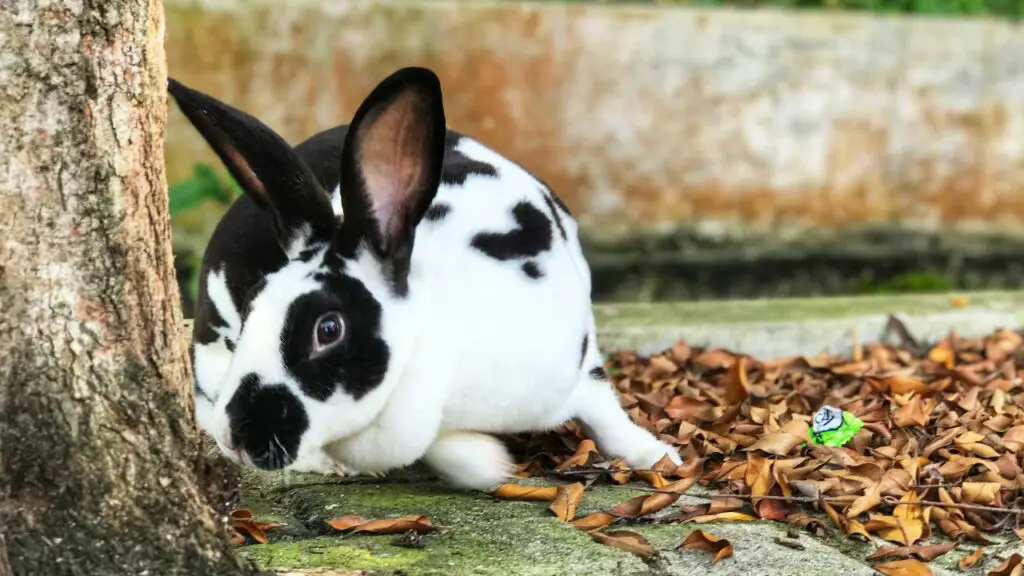Although bunnies can eat different foods, this does not mean that all of them are healthy. Like walnuts, which are rich in nutrients, including healthy fats, protein, fiber, vitamins, and minerals. But can bunnies eat walnuts?
Rabbits cannot eat nuts because they have a high content of fats and carbohydrates and a low fiber content, which can cause your rabbit many digestive problems.
Also, the nutrients in walnuts are not enough to supplement the bunnies’ diet, but what if your bunny eats walnuts? Are black walnuts bad for them too?
Can Bunnies Eat Walnuts?
Bunnies cannot eat walnuts. They are not recommended because of their high fat and low fiber content.
The regular diet of rabbits consists of low-energy and high-fiber foods due to their sensitive digestive system, which cannot handle high fat and carbohydrate content.
Although walnuts have vitamin A and B vitamins, fiber, iron, zinc, potassium, selenium, phosphorus, magnesium, thiamine, niacin, and folate, they also contain 65% fat, 4% water, and 7% fiber.
And one of the most important nutrients your bunny needs is fiber, which is essential for healthy digestion, and the best source of fiber for bunnies is fresh hay.
Excessive consumption of fatty foods can cause obesity in bunnies, leading to health problems such as arthritis, heart disease, and fatty liver disease.
While consuming carbohydrates without sufficient fiber can contribute to gastrointestinal stasis, which causes the digestive process to slow down or even stop, potentially fatal for your bunny.
Also, although technically they are neither poisonous nor toxic, walnuts contain tannins that can be toxic to rabbits if consumed in large quantities. Tannins are substances that can interfere with nutrient absorption and cause gastrointestinal problems such as diarrhea and vomiting.
Walnuts Are Not Recommended for Pregnant Rabbits
Walnuts can be harmful to some rabbits at certain stages of their lives. For example, pregnant rabbits should avoid consuming walnuts due to their high vitamin A content, which could cause congenital malformations in the fetuses.
Also, young rabbits have a still-developing digestive system, so they should avoid giving them walnuts to prevent gastrointestinal problems.
Can Bunnies Eat Walnut Shells?

Bunnies cannot eat hickory walnut shells. These shells have no nutritional value for rabbits, mainly containing insoluble fiber and lignin.
If a rabbit eats a large number of hickory walnut shells, they may experience gastrointestinal problems, too, such as diarrhea, constipation, bloating, and abdominal pain.
Besides, walnut shells are so hard. They represent another danger for them since it can be difficult for a rabbit to chew and swallow and get stuck in its throat, causing asphyxia and intestinal obstruction.
Can Bunnies Eat Black Walnuts?
Bunnies cannot eat black walnuts as they are poisonous to them.
Black walnuts, native to Central and Eastern America, are scattered throughout several states in the United States, grow on tall trees, and have a green coating around their hard brown shell, inside of which is the nut itself.
Black walnuts are low in carbohydrates and simple saturated fats. They are a source of alpha-linolenic acid, an omega-3 fat that can cause problems in pets’ gastrointestinal tract, including bunnies.
Also, black walnuts contain a moderate amount of calcium and phosphorus, which can be problematic for the bunny’s bone and dental health if consumed in large amounts.
Rabbits should avoid consuming any part of the walnut tree, including the wood, leaves, and shell, as their digestive system cannot process them properly.
What Happens If I Give Walnuts to My Bunny?

Nothing will happen to your bunny in small amounts, but it is still unsafe for them, and you should keep an eye on them for the next few hours if there are any signs of problems or discomfort.
If your rabbit shows food refusal, produces soft, discolored, or watery stools, or does not defecate within 12 hours, you must seek help from a rabbit veterinarian immediately.
In case of digestive problems in rabbits, limiting food intake and offering water and hay as part of the diet is recommended.
A good practice to maintain a healthy digestive tract in rabbits is to make sure they consume enough hay, reduce the number of high-sugar foods, such as fruits, and eliminate foods high in fat and carbohydrates and low in fiber, such as walnuts.
If a rabbit eats walnuts by accident, he may have problems digesting them. Still, in large quantities, they can cause gastrointestinal problems mentioned above, such as diarrhea, constipation, bloating, and abdominal pain.
The excess vitamins and minerals can also be counterproductive in a rabbit’s diet. Folic acid in large amounts can adversely affect a rabbit’s nervous system. At the same time, too much vitamin A can damage his joints.
In addition, a diet with too much calcium can cause deposits in the rabbit’s body, leading to urinary tract infections and damaging internal organs.
Walnut Alternatives Your Bunny Can Eat
Most types of walnuts are not recommended for bunnies as they are all high in fat and carbohydrate, so if you want to offer your furry friend a treat, or an additional snack outside of their regular diet, here are several options that in the right amounts are very safe for bunnies.
Kale: is a rich source of nutrients and vitamins, including vitamin C, essential for bunny health.
Watermelon: is a low-calorie fruit and a good source of vitamins and minerals, such as vitamin C and potassium.
Oranges: are a source of vitamin C, which is vital for rabbits’ health, as rabbits cannot produce this vitamin on their own.
Grapes are rich in vitamin C and have an appealing flavor that rabbits love.
Summary
Bunnies cannot eat walnuts. Walnuts have good nutrients, but because of their high-fat content, they are not worth including in the pet food list, especially for bunnies.
Also, walnuts do not have nutrients that our bunnies need or cannot get in other safer foods.
Rabbits are herbivorous animals, feeding primarily on plants; even wild rabbits do not eat walnuts.
In fact, they are not interested in walnuts, and most rabbits do not like walnuts at all, as it is not a food they would eat in the wild or that brings them any benefit.
Don’t take risks by feeding your bunny walnuts; if by accident your bunny has ingested a large number of walnuts, don’t hesitate to take it to a veterinarian.
Reference:
1. https://www.uky.edu/ccd/sites/www.uky.edu.ccd/files/walnuts.pdf





